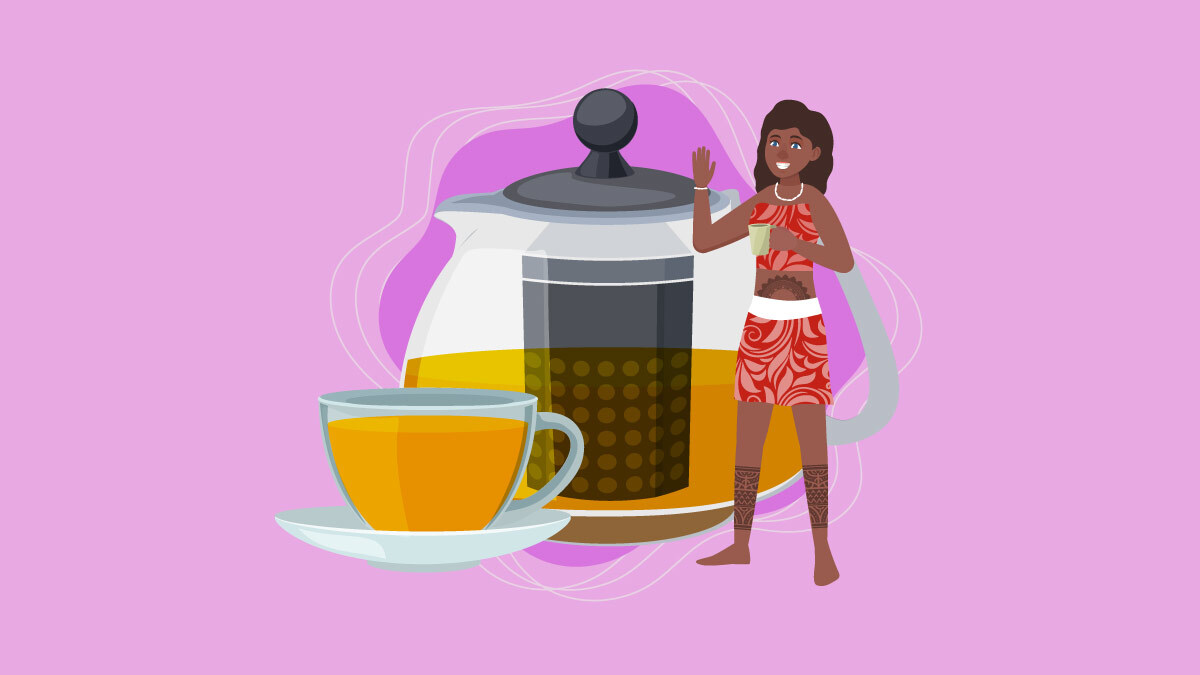Although traditional methods of brewing kava rely on high doses of the herb mixed with water, there are also a lot of tea blends made with kava for a more subtle effect.
Kava root can be chopped, dried, and mixed with other herbs like green or black tea (Camellia sinensis), or other herbs like mint, hibiscus, chamomile, passionflower, and more to produce a delicious, soothing tea.
We love kava steep-teas when we’re stressed, or at the end of a long day to help us relax and fall asleep. The addition of other herbs in the mix can dramatically improve the bitter or spicy flavor of kava — which makes it easier for people with sensitive palates to enjoy the many benefits this herb has to offer.
This article is all about steep tea kava — which is the type of kava you’ll find in a teabag, rather than the raw powder used to make a traditional kava brew.
In this article, we’ll cover everything you need to know about using kava steep teas, including some of our favorite blends and advice on brewing the perfect cup of kava tea.
Top 3 Kava Root Teas (In Teabags)
First things first, let’s cover some of our favorite kava tea blends. These teas all use kava as one of the main ingredients, along with other herbs to improve the flavor or add to the relaxing and stress-relieving effects of the kava root.
- Buddha Teas Kava Kava Root Tea — Best Pure Kava Root Tea Bags Overall
- Yogi Tea Kava Stress Relief — Best Kava Tea For Stress
- Celebration Herbals Kava Tea — Best Kava Tea Blend
1. Buddha Teas Wild-Harvested Kava Kava Root Tea
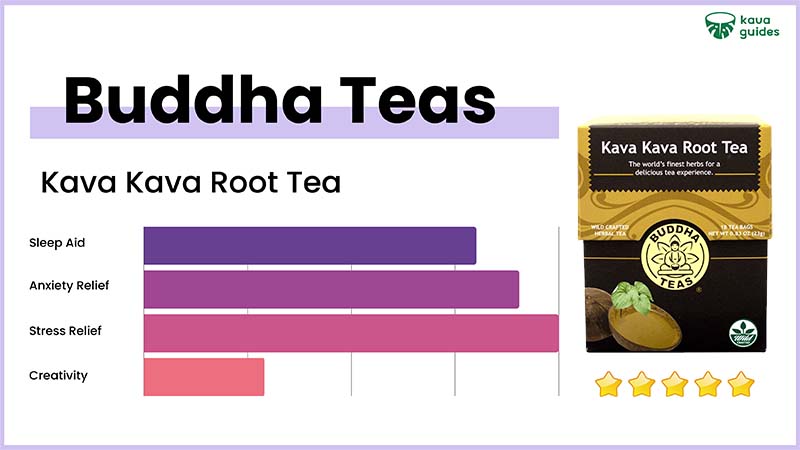
Buddha Teas is one of our favorite tea suppliers. They have a very large selection of organic teas — covering just about every kind of tea you can think of, from the standard green and black tea to herbal options like dandelion or kava.
The company is best known for its sustainability model. For every box of tea you buy, a portion goes to a charity that plants trees around the world. The company also uses cruelty-free products, and sources organic or wild-crafted herbs whenever possible. All packaging is made from biodegradable materials as well.
Buddha Teas Wild-Harvested Kava Kava Root Tea is made from roots harvested directly from the wild on islands like Fiji or Vanuatu where the plant grows freely.
These teas have no additives, just pure kava root.
The flavor of this tea is best described as earthy and rich. It tastes like a much milder version of traditional kava tea.
Each box comes with 18 tea bags — each of which can be steeped 2 to 3 times.
2. Yogi Tea Kava Stress Relief
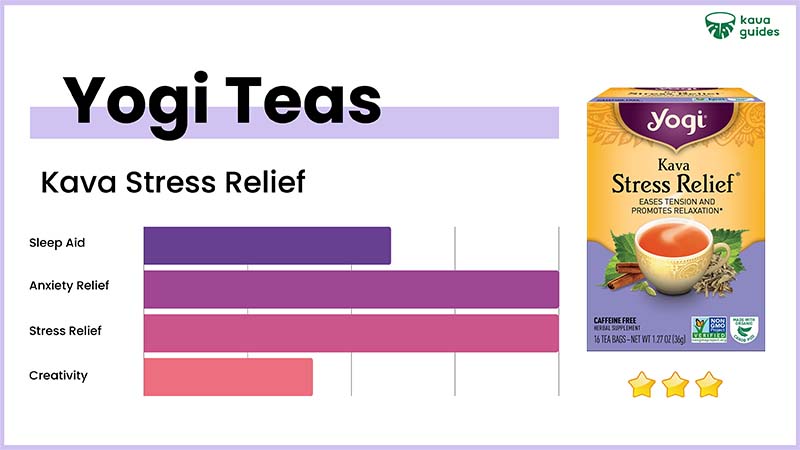
Yogi Tea offers dozens of top-notch tea blends. Perhaps we’re a little biased, but our favorite is the Kava Stress Relief blend.
These tea bags contain a blend of kava, cinnamon, sarsaparilla, and carob pods.
The kava offers the bulk of the relaxing and stress-relieving benefits, while the cinnamon and sarsaparilla give the blend a gentle warming effect. The carob gives the blend a rich chocolate flavor that compliments the earthy flavor of the kava perfectly.
This is by far one of the best tasting kava steep teas we’ve tried yet.
Each box comes with 16 caffeine-free tea bags.
3. Celebration Herbals Kava Kava Blend
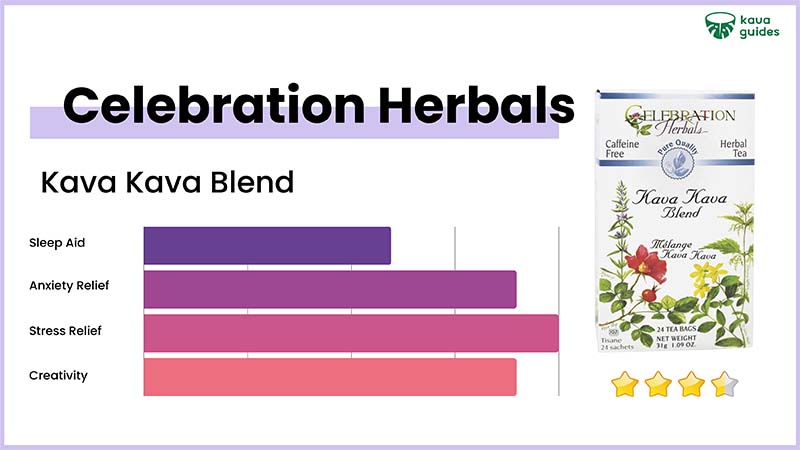
This kava tea blend from Celebration Herbals combines kava root with cinnamon and dried cranberries.
Celebration Herbals puts kava at center stage for this herbal blend — after just a few minutes of drinking, you can already feel a sense of calm and tranquility sweeping over you.
This blend has a very unique flavor — it’s spicy, earthy, and slightly sweet all at the same time. The Cranberries give the brew a mild tart flavor as well, which stimulates the tastebuds and makes all the other flavors in the tea pop just a little more.
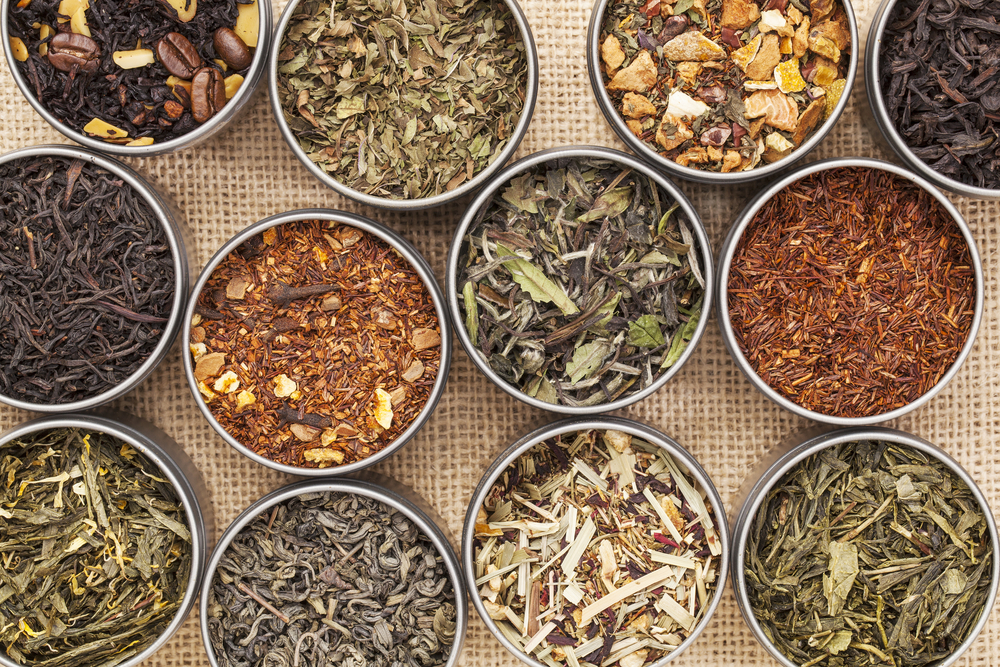
What is Kava Tea?
Traditionally, kava is brewed from the raw or dried and powdered rootstock. It’s mixed with water vigorously to produce a potent concoction of muddy, bitter-tasting water. The effects of this preparation are very strong, and can even make users feel drunk if enough is consumed.
This isn’t the case with steep teas.
Instead of mixing high doses of kava with water, kava steep teas use a small amount of root and passive diffusion to make the brew. The coarsely-ground rootstock is mixed with other herbs to improve the flavor and add to their own influence on the overall effects of the tea.
Kava teas are much gentler than traditional preparation methods of kava and are generally much more enjoyable to drink (the flavor of kava is an acquired taste).
These teas are perfect for people looking to wind down at the end of the day, or simply enjoy a relaxing cup of herbal tea.
You won’t get high from kava tea, and it’s not going to knock you out cold. Instead, kava steep teas will simply support your body to naturally relax, unwind, and de-stress.
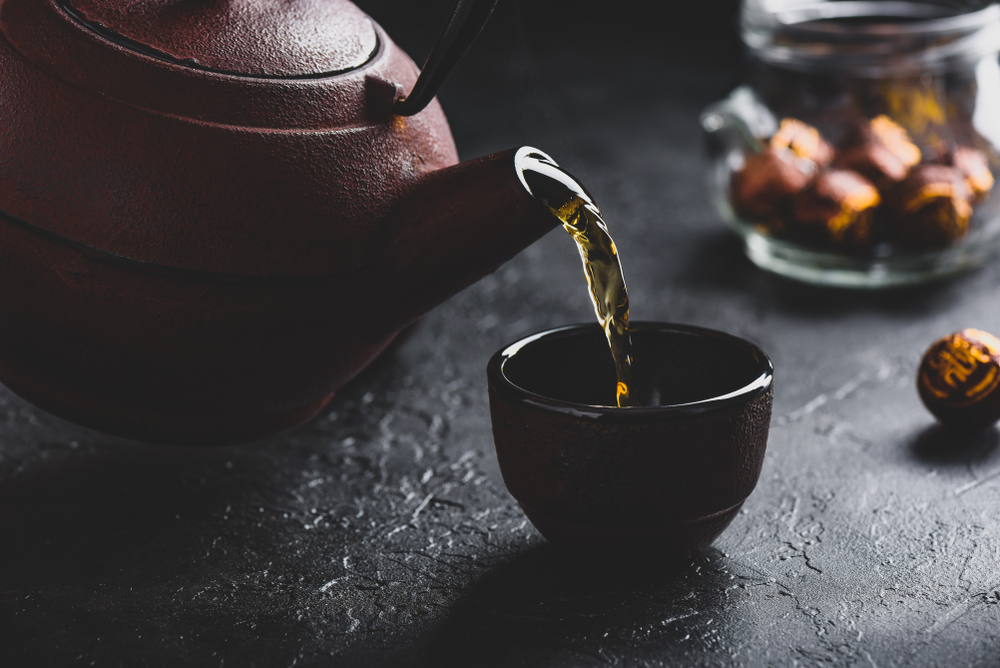
How to Prepare Kava Steep Tea
Brewing kava tea is simple — all you have to do is pour boiling water over the teabag like you would any other tea. Wait about 5 minutes to let the active constituents of the kava diffuse into the water, and enjoy.
As with any herbal tea, we recommend letting the kava tea steep in the water for at least a few minutes. The longer you let it sit, the stronger the tea will be.
Depending on the other herbs in the mix, you may want to cover the tea as it steeps as well, to avoid letting the flavorful essential oils escape from the cup as you wait.
We also recommend you use water that is nearly boiled (about 80 degrees Celsius) instead of completely boiled water.
Brewing the tea with very hot water will tend to make the final drink more bitter, so taking the kettle off the stove right before it starts to boil will make the brew taste much better. This is the case for most herbal teas.
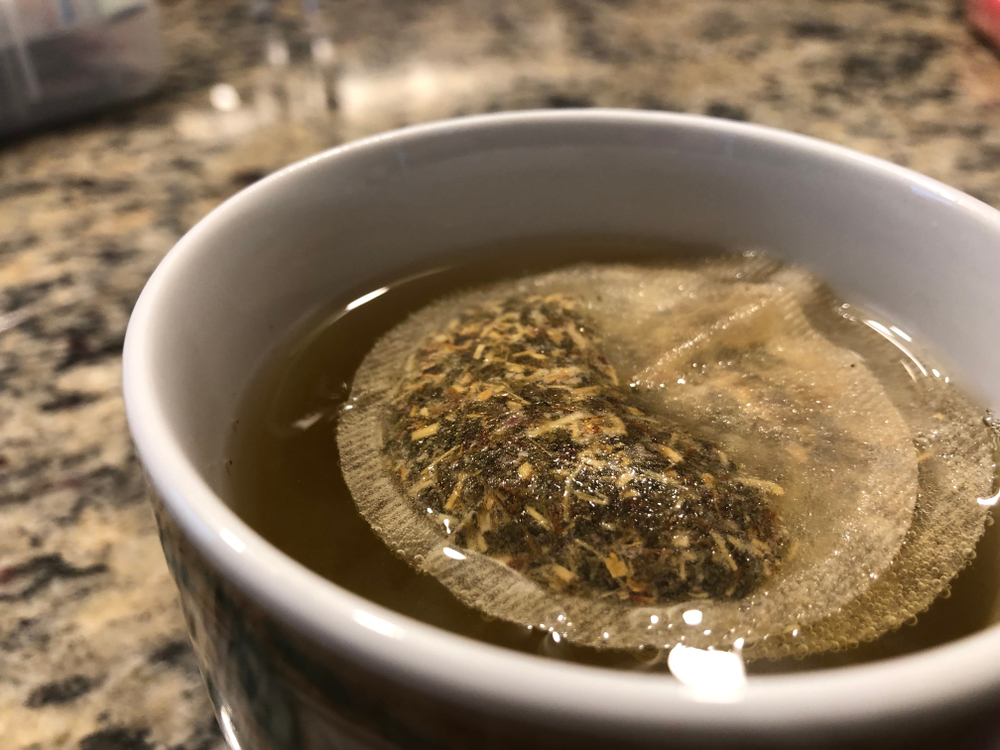
Blending Kava With Other Herbs
You can find kava steep tea made with pure kava, but we prefer to use a herbal blend instead.
Kava isn’t known for its great flavor, so if you plan to use the herb in the form of a simple tea, why not find a blend that has a delicious flavor to compliment the effects of the kava?
There are a lot of different herbs that can be mixed in with kava to both improve the flavor and boost its effects.
Popular Herbs to Add to Kava Tea
| Herb Name | Flavor Profile | Effect Profile |
| Peppermint (Mentha piperita) | Minty, soothing, cooling | Soothes the digestive tract, calming |
| Passionflower (Passiflora incarnata) | Mild floral aroma | Very calming herb, an excellent addition to kava because it shares similar effects |
| Hibiscus (Hibiscus rosa-sinensis) | Mild spicy flavor | Improves blood flow, promotes focus and concentration, soothing for the digestive tract |
| Cinnamon (Cinnamomum verum) | Spicy flavor | Improves blood flow, brings out the taste of other herbs in the blend |
| Valerian (Valeriana officinalis) | Woody, grassy flavor | A powerful relaxant and herbal sedative |
Is Kava Tea Effective?
Kava teas are generally our least favorite way of using kava because the effects are so much milder than taking capsules, tinctures, or traditional preparation methods.
However, this doesn’t mean kava steep teas are ineffective.
The addition of other herbs to the brew adds to the relaxing effects, and there’s something characteristically relaxing about a warm cup of herbal tea.
Yes, kava teas are much milder than other forms, but they still provide a noticeable change in our mental state. They make us feel calm, relaxed, and carefree. They’re perfect for the end of a long day or for enjoying in a relaxing bath before bed.
Mild forms of stress, feelings of uneasiness around an upcoming meeting or event, or difficulty falling asleep are all mediated by a warm cup of kava tea — especially if other relaxing herbs like passionflower or valerian are also included.
As for some of the more severe symptoms, people may use kava for supporting — like anxiety, or insomnia — kava steep teas may not be able to offer the level of support as a high-potency kava brew, tincture, or capsule.
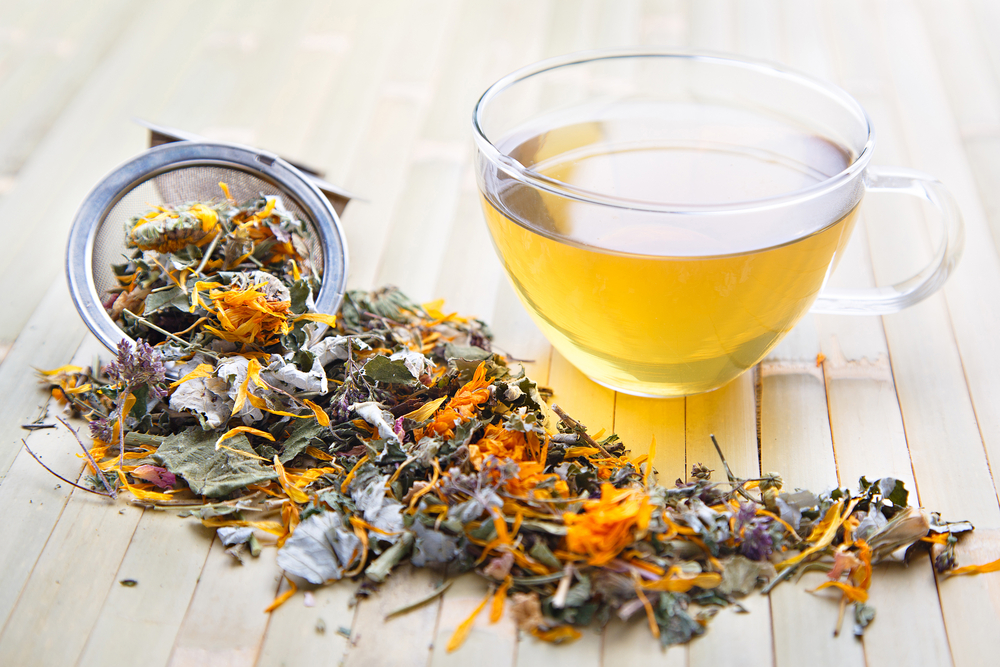
Final Thoughts: Best Kava Teas
Kava steep teas are made just like any other herbal tea using a teabag and cup of hot water. They’re one of the easiest ways to use kava and offer a gentle and delicious way to relax and kick back at the end of a long day.
You’re not going to get the same level of effects you’re likely to find from using a potent traditional kava brew, or capsules. For a lot of people, this is a positive — as traditional kava brews may be too strong.
Have you tried kava steep tea? Let us know your favorite kava tea brand in the comment section below.
